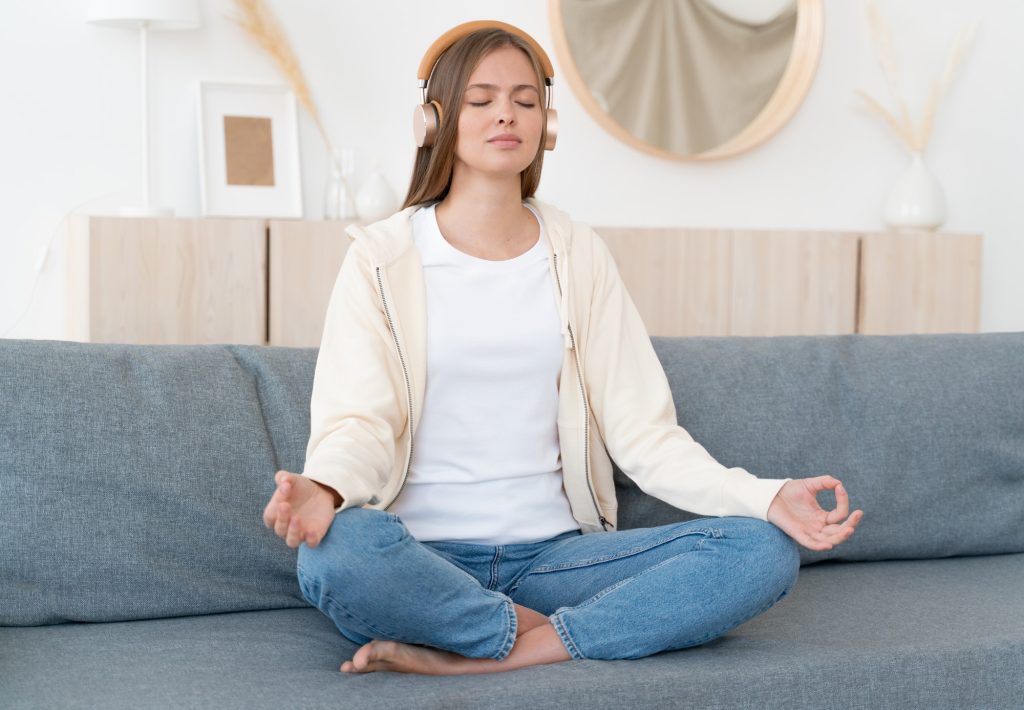Stress is a natural part of life, and it can spur you on to action. Even high levels of stress can be a normal part of life in the wake of a traumatic incident or a serious illness. For a period, it’s normal for you to feel depressed or anxious. Do this and say goodbye to stress…
If you experience depression or anxiety for more than a few weeks or if it starts to affect your daily life at home or at work, speak with your doctor. Medication, therapy, and other approaches may be beneficial.
You can take steps to reduce your stress before it becomes overwhelming in the meantime by learning certain techniques. Do this and say goodbye to stress…

Maintain a positive outlook.
Recognize that some things are beyond your control.
Instead of being aggressive, be forceful. Instead of being irate, defensive, or passive, express your feelings, opinions, or beliefs.
Improve your time management skills.
Set reasonable boundaries and refuse requests that would put too much stress on your life.
Make time for your interests and hobbies.
Avoid using drugs, alcohol, or compulsive habits as a way to cope with stress. Alcohol and drug use might cause your body even more stress.
Look for social assistance. Give your loved ones enough time.
To discover more healthy ways to handle the stress in your life, seek counseling from a psychologist or other mental health expert experienced in stress management or biofeedback techniques.
You can do a lot more actions to aid with stress management. Take into account the following alterations in lifestyle:
Exercise
To begin with, exercise can help you sleep better. improved stress management also results from improved sleep. People who exercise more frequently tend to obtain better deep “slow wave” sleep, which helps regenerate the brain and body but doctors are not yet sure why. Just be careful not to exercise too close to bedtime, as this can disturb some people’s sleep.
Mood seems to benefit from exercise as well. The fact that marijuana triggers the release of several chemicals, including endorphins and endocannabinoids, which aid in blocking pain, enhancing sleep, and sedating you, may be a contributing factor. Some of these, called endocannabinoids, may be the cause of the euphoric sensation, sometimes known as the “runner’s high,” that some people experience after strenuous workouts.
Additionally, those who exercise report feeling less worried and more confident in themselves. Your mind frequently follows your body when it feels wonderful. Utilize these exercises to reduce stress:
Exercise Swimming Dancing
Cycling Exercise
You can still move throughout your day if you don’t have time for a regular fitness regimen. Try the following advice:
Instead of driving to the store, take a bike.
Instead of using the elevator, use the stairs.
Park as far away from the entrance as you can.
Wash your automobile by hand.
Organize your home.
Take a stroll during lunch.
Diet
Eating healthy foods has advantages for your mental health in addition to your waistline. A nutritious diet can boost your immune system, balance your mood, lower your blood pressure, and lessen the negative effects of stress. The opposite outcome may occur if there is a lot of added sugar and fat. Additionally, when you’re stressed out, junk food may seem much more attractive.
Look for complex carbs, lean proteins, and fatty acids in foods like fish, meat, eggs, and nuts to keep healthy and balanced.
Antioxidants also support. They safeguard your cells from the harm that ongoing stress may bring about. They are present in a plethora of foods, including beans, fruits, berries, vegetables, and spices like ginger.
Follow these straightforward advice to maintain a healthy diet. Construct a shopping list. When you leave the house, bring some wholesome snacks with you. Avoid processed foods, and make an effort to control your eating. Do this and say goodbye to stress.
Researchers have identified a few foods that may help to mitigate the negative effects of stress on the body and mind. As part of a balanced diet, make sure you get enough of these:
Magnesium with vitamin C
fatty acids omega-3
Sleep
You can have trouble falling asleep as a result of stress. You may experience insomnia, which is the inability to fall asleep and stay asleep, if this occurs three times per week for at least three months. You can experience a cycle of tension and sleeplessness if you don’t get enough sleep.

Increased slumber can be beneficial. This pertains to both your daily schedule and the arrangement of your bedroom. Following behaviors could be helpful: Do this and say goodbye to stress.
Regularly moving around.
Step outside in the sunshine.
Nearing bedtime, limit your coffee and alcohol intake.
Plan your sleeping hours.
Avoid using gadgets 30 to 60 minutes before going to bed.
Before going to bed, try relaxing techniques like meditation.
In order to practice excellent sleep hygiene, your bedroom plays a crucial role. Your room should generally be quiet, dark, and chilly. There is also a significant significance for your bed. Support, space, and most importantly comfort, should all be features of your mattress.
Restorative Practices
Yoga. Although it is a workout, this can also be a sort of meditation. Yoga comes in a variety of forms. The exercises that emphasize deep breathing, stretching, and moderate movement are the most effective for reducing anxiety and tension.
Meditation. There is a reason why it has endured for more than 5,000 years. Numerous people find that meditation is effective and beneficial. It can enhance mood, sleep, and energy levels while reducing stress, anxiety, and chronic pain. In order to meditate, you must:

Locate a peaceful area.
Make yourself at ease by sitting or lying down.
Concentrate your focus on a single word, phrase, item, or even your breath.
Allow your thoughts to come and go without critiquing them.
Inhaling deeply. Deep breathing exercises activate your body’s inherent relaxation response. This induces a deep sleep that alters how your body reacts to stress. More oxygen is delivered to the brain, and the area of the neurological system in charge of relaxation is calmed.
Test out belly breathing. Put one hand on your stomach and the other on your chest as you settle in, close your eyes, and take a seat. Breathe in deeply through your nose. Your chest should not rise as much as your belly should.
Biofeedback. When stress strikes, learn how to control your blood pressure, muscle tension, and heart rate. You can learn more about how your body responds to relaxation efforts through biofeedback. Your body is fitted with sensors that can detect changes in everything from muscle tone to brain wave patterns. By altering how your body responds to the sensor, you can begin to manage the signals by working with a biofeedback therapist.
Interact with others. Spend time talking to a friend or member of your family who will listen. It is a healthy approach to de-stress and calm down. Your body releases a hormone that suppresses your fight-or-flight reaction when you interact with others in person. You unwind.
Behavior. Your degree of stress is strongly influenced by how you react to other people. Follow these advice to control your reaction: Do this and say goodbye to stress.
Try not to take on too much.
Share the burden of proof
Prior to responding, count to ten.
Leave a tense situation alone
Take a break by listening to music or podcasts.
voice inside. The voice in your head has the most impact on your stress levels. The good news is that you have the power. Negative thoughts can be replaced by uplifting ones. Positive self-talk has advantages beyond just lowering stress. A longer lifespan, decreased rates of depression, increased resilience to the common cold and cardiovascular disease, and improved coping mechanisms are a few of these benefits.
Laughter yoga. Laughing causes you to breathe in more oxygen. Your body releases those feel-good hormones and your heart, lungs, and muscles are strengthened. Additionally, laughing strengthens your immune system, eases discomfort, and elevates your mood for extended periods of time.
Speech treatment. Some people find that long-term talk therapy makes it easier to manage stress. You can alter unhelpful thought patterns using a technique called cognitive behavioral therapy. You can be directed toward more strategies by your therapist. Do this and say goodbye to stress.









